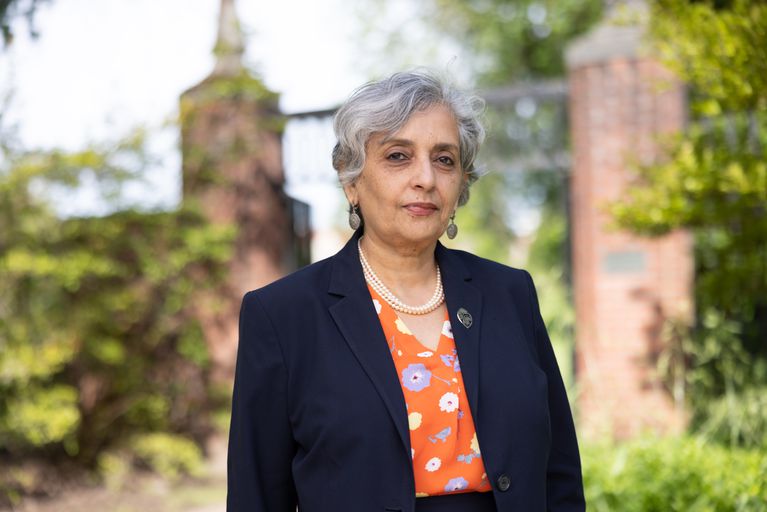NRI Pulse Staff Report
Atlanta, GA, July 4, 2022: Jayathi Y. Murthy, a national leader in higher education engineering teaching, research and service, and advancing diversity, equity and inclusion, will soon become the first woman of color to lead Oregon State University (OSU) as its next president.
Murthy, who has served as the Dean of the UCLA School of Engineering and Applied Science since January 2016 and previously worked at several other top engineering universities and in the private sector, will become OSU’s 16th president on Sept. 9, 2022.
“This is the right place and right time,” Murthy said. “I am very impressed by Oregon State University. OSU is well-positioned to address the many challenges in how higher education will be best provided in the years ahead thanks to the university’s excellent faculty, staff and leaders, and its commitment to student success, inclusive excellence and its long experience and leadership in online education.”
Murthy praised OSU for its growing national and global research prominence and its contributions to Oregon communities statewide through OSU Extension and engagement programs.
“Oregon State University is widely recognized in all things related to climate science and resilience, and also in transdisciplinary research related to AI, robotics, natural resources, clean energy, public policy, public health and the social sciences,” she said.
“This is the time to think big and do big things. I am confident that OSU can be a national leader in the post-pandemic era.”
“We are very pleased to welcome president-elect Murthy to Oregon State University,” said Kirk Schueler, chair of OSU’s Board of Trustees.
“Dr. Murthy is the right person and leader to guide this remarkable university that is enjoying tremendous momentum. Under Dr. Murthy’s leadership, OSU’s incredible impact in Oregon, nationally and globally, and the university’s commitment and progress in advancing diversity, equity and inclusive excellence will grow.”
Murthy, 64, was the first woman dean at UCLA’s engineering school, which has 190 faculty members and more than 6,000 undergraduate and graduate students. During her tenure, she made expanding access to a UCLA engineering education a top priority. This includes deepening relationships with local community colleges, increasing outreach to underrepresented minority groups and easing the transition for transfer students.
She also led the effort to establish Women in Engineering at UCLA (WE@UCLA) – a program that supports the full participation of women in engineering.
Murthy also has been active helping raise more than $330 million in philanthropy at UCLA.
She underscored her intention to advance OSU’s commitment to inclusive excellence among students, faculty and staff.
“Advancing diversity, equity and inclusion is a deeply held conviction of mine and is central to my work as an educator and administrator,” Murthy said. “As an engineer, I have often been the only woman in the room since I was 16.”
Murthy said the university will advance inclusive excellence by providing access to college for all learners and providing students enrolled on campus and online with strong student support services, including advising, internships, mentoring and financial assistance for those with need.
“I do not believe in exclusivity or in excluding certain students,” she said. “That’s not the future I see for OSU. I see broad access for all qualified learners.”
Before joining UCLA, Murthy was chair of the mechanical engineering department at the University of Texas at Austin and held the Ernest Cockrell, Jr. Memorial Chair in Engineering from 2012-2015. Prior to that, Murthy was a mechanical engineering professor at Purdue University from 2001-2011 and served as a professor of mechanical engineering at Carnegie Mellon University in Pittsburgh from 1998 to 2001.
While at Purdue and University of Texas, Murthy served as the director of the Center for Prediction of Reliability, Integrity and Survivability of Microsystems (PRISM) from 2008 to 2014, a center of excellence supported by the National Nuclear Security Administration (NNSA).
Murthy began her career at Arizona State University, where she was an assistant professor of mechanical and aerospace engineering from 1984 to 1988. From 1988 to 1998, Murthy worked at New Hampshire-based Fluent, Inc., a developer and vendor of the world’s most widely used computational fluid dynamics software. She led the development of algorithms and software that still form the core the company’s products.
She has authored over 330 technical publications.
Murthy received a doctorate in mechanical engineering from the University of Minnesota, a master’s degree in mechanical engineering from Washington State University and a bachelor’s of technology degree in mechanical engineering from the Indian Institute of Technology, Kanpur, where she was named a distinguished alumna in 2012.
She is a member of the National Academy of Engineering (NAE), foreign fellow of the Indian National Academy of Engineering (INAE), fellow of the American Society of Mechanical Engineers (ASME) and the recipient of many honors, including the ASME Heat Transfer Memorial Award in 2016 and the ASME Electronics and Photonics Packaging Division Clock Award.
Murthy is married to Dr. Sanjay Mathur, an aerospace engineer who works at SparkCognition, a firm specializing in artificial intelligence systems and development.
Action to appoint Murthy by the OSU Board of Trustees concluded a national presidential search launched in late 2021 with the formation of a 17-member search advisory committee, the holding of community listening sessions and development of a presidential leadership profile to guide the recruitment process.
The recruitment included an extensive interview process of candidates that involved the search advisory committee and trustees. On May 23 and 24, two finalist candidates were invited to OSU’s Corvallis campus for final interviews with the board of trustees, community conversations and public forum meetings with each finalist. The search process included the opportunity for community members to provide web input to the board on each finalist and also included extensive background checks and due diligence on each finalist.





